Our international and national speakers will address the conference theme Advancing technology and innovation in rehabilitation with a particular focus on neurological and physical rehabilitation. The program will appeal to a wide range of staff including medical, nursing, allied health and research personnel.
Speakers will discuss the latest innovations across:
Telehealth and rehabilitation
Robotics in rehabilitation
Recent innovations in rehabilitation
Local rehabilitation research expertise
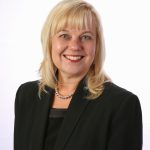 Prof Leanne Togher, The University of Sydney, Australia
Prof Leanne Togher, The University of Sydney, Australia
Presentation Title – Using digital health technologies to improve communication outcomes following stroke and TBI
Professor Leanne Togher is a speech pathologist who has worked in the area of communication disorders following brain injury for over 30 years. Leanne is the recipient of her 3rd Senior Research Fellowship from the NHMRC, and is Principal Research Fellow of The University of Sydney. Leanne’s work has led to new ways of improving the communication of people with brain injury, particularly, by training people with brain injury and their communication partners, including family, friends and the community. Leanne’s research is developing the use of E-health and technology to offer innovative treatment options for people with brain injury and their families.
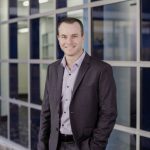 Prof Trevor Russell, University of Queensland.
Prof Trevor Russell, University of Queensland.
Presentation Title – The effectiveness, challenges and uptake of telerehab in specific patient populations eg arthroplasty, speech etc
Trevor Russell is a Professor in the Division of Physiotherapy within the School of Health and Rehabilitation Sciences at the University of Queensland. He has a PhD in Telerehabilitation and co-directs the Centre for Research in Telerehabilitation at the University of Queensland. His primary research focus surrounds the use of mobile technologies and telecommunication tools for both clinical service provision and teaching and learning in the rehabilitation sciences. Specifically his research aims to develop innovative computer based hardware and software solutions to enable the provision of rehabilitation services remotely via the Internet; to further the evidence base of telerehabilitation through controlled clinical trials of telerehabilitation interventions; to evaluate the treatment efficacy of specific telerehabilitation interventions; and develop best practice guidelines for the establishment of telemedicine
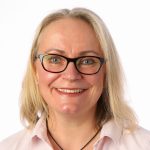 A/Prof Sarah Dennis, University of Sydney; SWSLHD
A/Prof Sarah Dennis, University of Sydney; SWSLHD
Presentation Topic – Challenges and enablers for access to evidence-based community rehabilitation: how can we implement best practice?
Associate Professor Dennis is Associate Professor of Allied Health in Faculty of Health Sciences, University of Sydney and South Western Sydney Local Health District. Her research interests are in the prevention, diagnosis and management of chronic conditions with a focus on equity and access in primary health care, integration of care across health sectors. She is particularly interested in how people can access effective allied health interventions to prevent or manage long term conditions or disability.
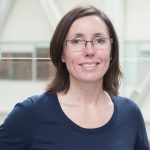 A/Prof Cathy Stinear, University of Auckland
A/Prof Cathy Stinear, University of Auckland
Presentation Topic – Predicting motor outcomes after stroke: How and why
Cathy Stinear is an Associate Professor in the Department of Medicine, University of Auckland. She is a clinical neuroscientist who has led the development of simple algorithms for predicting upper and lower limb motor outcomes after stroke. These predictions can be made within days of stroke, and are used to guide rehabilitation decisions, manage patient expectations, and individualise therapy. Her research in this area has been published in leading journals, including Brain, Stroke, and Lancet Neurology. In this presentation she will describe how to make accurate predictions for individual patients, and why this is worth doing in clinical research and practice.
 Tasmin Reed Clinical Lead Physiotherapist, HCA Healthcare UK
Tasmin Reed Clinical Lead Physiotherapist, HCA Healthcare UK
Presentation Title: Ways to maximise practice intensity to optimise outcomes of neurological rehabilitation.
Tamsin qualified as a Physiotherapist at Nottingham University in 2001. Following a few years working in the public sector and deciding to specialise in Neurological Rehabilitation, she started working at the Wellington Hospital in London, on the Neurological Rehabilitation Unit. Tamsin completed a Masters in Neurological Rehabilitation and developed a keen interest in the use of Functional electrical stimulation and robotics in Neurological Rehabilitation. She has presented on this topic extensively both in the UK and at international conferences. Tamsin is chair of the WFNR special interest group on the “Use of Advanced Technologies in Neurological Rehabilitation”.
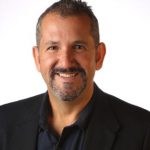 A/Prof Paulo Ferreira, Faculty of Health Sciences, University of Sydney
A/Prof Paulo Ferreira, Faculty of Health Sciences, University of Sydney
Presentation Title -Using technology to assist management of musculoskeletal conditions
A/Prof Paulo Ferreira is a NHMRC Career Development Fellow and an associate professor at the Faculty of Health Sciences, University of Sydney. He is also a senior research fellow funded by a University of Sydney SOAR fellowship. He was one of the leaders of the 2018 Lancet Series that reported on the burden and future directions for low back pain. His research interests are in the management of low back pain, and the impact of lifestyle factors, and how technology can assist management. He has 161 publications in the field and >A$6.5M in funding from NHMRC, Arthritis Australia, Medibank Foundation and International funding bodies.
8.40 to 10.00 PLENARY SESSION
10.00 – 10.30 MORNING TEA
12:30 -1.30 LUNCH
3.30-3.35 Conference Close
8.30-8.40 WELCOME
8.40 to 10.00 PLENARY SESSION
8:40 – 9:10 + 10 min Qs Leanne Togher (using digital techn in stoke/TBI)
9:20-9:50 + 10 mins Qs Sarah Dennis (challengers and enablers to access to EB rehab
10.00 – 10.30 MORNING TEA
10.30 – 12.30 Neurological Rehabilitation
10:30 – 11.00 incl 5 min Qs Cathy Stinear (predicting motor outcomes stroke)
11.00 – 11.30 incl 5 min Qs Tamsin Reed (ways to max practice intensity for neuro rehab)
11.30-12.30 FREE PAPERS
12:30 -1.30 LUNCH
12:30 -1.30 LUNCH
1.30 – 3.30 Physical rehabilitation
1.30-2.00 incl 5 min Qs Trevor Russel (telehealth)
2.00-2.30 incl 5 min Qs Paulo Ferriera (technology to assist mx MSK conditions)
2.30-3.30 FREE PAPERS
3.30-3.35 Conference Close
Liverpool Hospital is located at the corner of Elizabeth and Goulbourn Streets, Liverpool NSW 2170.
The Thomas and Rachel Moore Education Centre at Liverpool Hospital is located at Entrance A on the corner of Elizabeth and Goulburn Streets Liverpool,NSW 2170
There are many ways to access the hospital – walking, cycling, public transport and parking – highlighted in this Transport Access Guide.
Liverpool Hospital is a 5-10 minute walk from the Liverpool train station and bus interchange.
Trains to Liverpool station run on the South and Inner West lines, Bankstown line and occasionally on the Cumberland line. To plan your trip, call the Transport Infoline on 131500 or visit https://transportnsw.info
The following bus services stop at Liverpool Hospital (corner Elizabeth and Goulburn Streets): 801, 802, 804, 805, 807, 808, 819, 823, 853, 855, 856 and 857.
The following bus services only stop at the Liverpool Bus Interchange: M90, T80, 803, 806, 851, 852, 854, 865, 866, 870, 871, 872, 901, 902, 903 and 904.
The free Liverpool Shuttle route 999 runs every 20 minutes. The service operates on a one-way loop from Liverpool Station/Bus Interchange, connecting Liverpool Hospital, Westfield Liverpool, Liverpool Library and Liverpool Post Office. Hours of operation are Monday to Friday, 9.00am to 2.30pm; and Saturday to Sunday, 9.00am to 5.45pm.
Driving:
Liverpool Hospital is in close proximity to the Hume Highway (also known as Liverpool Road), the M5 and Westlink M7 Motorway and is located in the Liverpool CBD.
Car parking is available for a cost under the Thomas and Rachel Moore Education Centre with further spaces available in the multi-storey parking station in Campbell Street.
There are hotels and serviced apartments located in Liverpool – please arrange accommodation directly with your preferred hotel.
Quest Apartments Liverpool, offers brand-new, serviced apartment style hotel rooms in the heart of Liverpool’s CBD.
Holiday Inn Warwick Farm, is a contemporary-designed hotel that provides rooms ranging from superior to executive suites and is the perfect choice for business and leisure travelers.
Mecure Liverpool, is ideal for both business and leisure. Adjoining the Liverpool Catholic Club, this extremely modern hotel features beautiful rooms, plus unbeatable facilities including a gym, ice rink and mini golf course.
Conference Organising Committee:
A/Prof Justine Naylor, Chair, SWSLHD; UNSW
Prof Grahame Simpson, SWSLHD: Griffith University
A/Prof Sarah Dennis, SWSLHD University of Sydney
Dr Joanna Kidd SWSLHD University of Sydney
Lauren Christie, SWSLHD; University of Sydney
Ellie Pavlov, Ingham Institute for Applied Medical Research
Ryan Luhan, Ingham Institute for Applied Medical Research
For more information about this event please contact, Dr Joanna Kidd on joanna.kidd@sydney.edu.au
You can also contact the Events team on 1300 66 55 41 or email – events@inghaminstitute.org.au
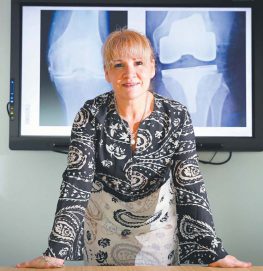
A three-year Australian study has concluded that despite inpatient rehabilitation for a knee replacement costing more than 20 times above home-based care, there is no difference in clinical outcome.

VIDEO: Major trial could change the way we fix broken bones